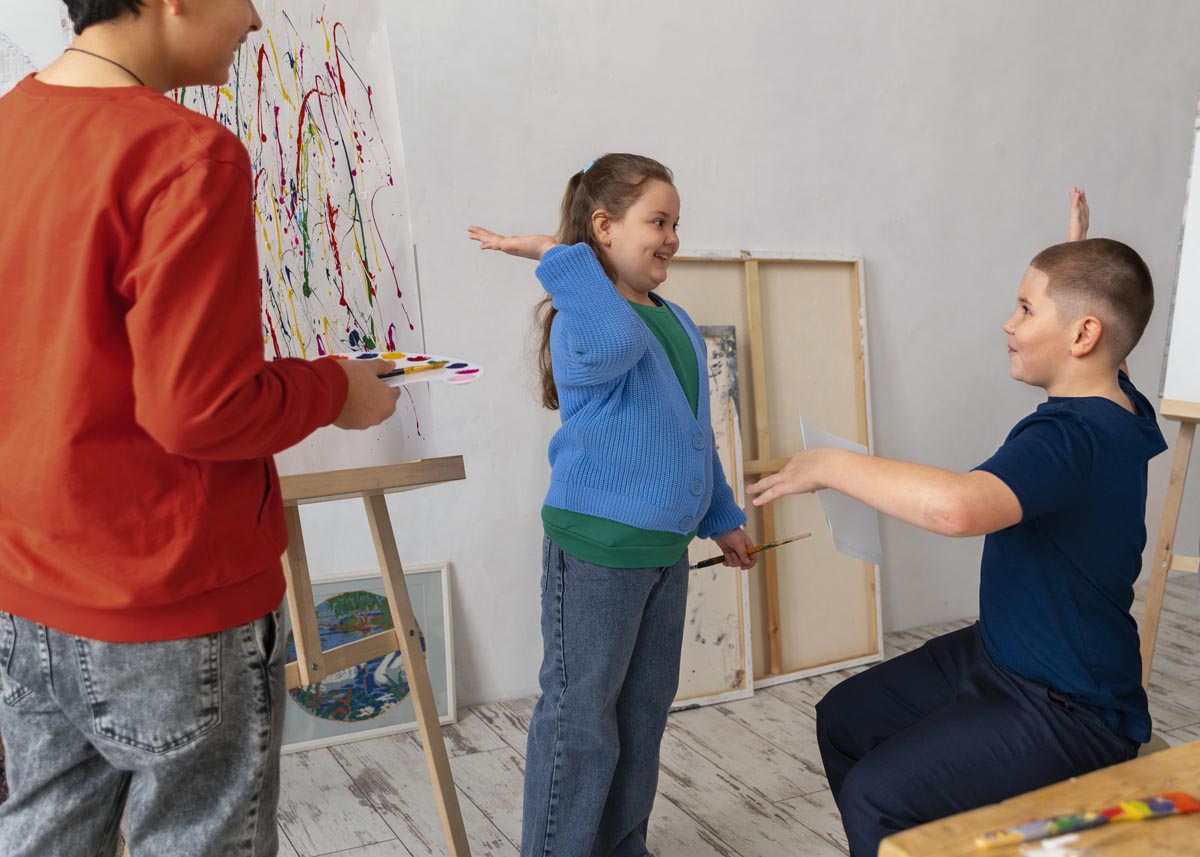The most valuable programs rarely announce themselves with splashy campaigns. They sit quietly in community rooms, library basements, and vocational classrooms, run by people who know your city’s bus timetables better than any app and can name the best interpreter within ten miles. Free workshops through local Disability Support Services offer that kind of grounded value. They can sharpen practical skills, open doors to benefits you did not know existed, and connect you with a network that feels like a concierge for everyday life. The challenge is not scarcity, but navigation. If you know where to look and how to ask, you can build an elegant, sustainable routine of learning that costs nothing but your time.
What “free” really covers
“Free” can be a slippery word, so it helps to define it before you plan. Most workshops funded through municipal agencies, nonprofit Disability Support Services, public libraries, and federally funded centers do not charge participation fees. That usually includes instruction, materials like workbooks or adaptive device samples, and, where necessary, accessibility supports such as sign language interpreters, CART captioning, and personal care attendant coordination. Occasionally, travel vouchers or paratransit fare reimbursements are available for low‑income participants. Stipends are rare, but you will sometimes see small gift cards for completion in grant‑funded pilots.
There are exceptions. A vocational rehab agency might cover the class but expect you to provide your own device for a technology training, or a community college may waive tuition but still charge a nominal campus fee. When something is free with conditions, staff will tell you if you ask directly and early. The key is timing your questions so they can still make adjustments, like adding an interpreter or setting up assistive listening.
Where the workshops come from
Most free offerings flow from a consistent set of hosts. Each has its flavor, its strengths, and its bureaucracy.
Public libraries remain an underestimated powerhouse. A central branch will often run job readiness sessions, digital literacy workshops, citizenship support, and financial coaching. Libraries tend to be nimble and responsive. If you ask for a Braille display demonstration or a screen reader tutorial, a motivated librarian can bring in a county tech trainer within a month. The accessibility ethos is usually strong, thanks to federal mandates and a culture that welcomes universal access.
Independent living centers, often called ILCs, exist in every state. They are run by and for people with disabilities. Their workshops skew practical, with topics like self‑advocacy scripts for medical appointments, peer counseling circles, cooking classes with adaptive utensils, accessible fitness, and renter’s rights. An ILC program director I work with in Phoenix likes to say their agenda is set by the hallway, meaning they build the schedule around what people mention in passing. If falls have been an issue lately, they bring in a physical therapist for balance techniques. If enough clients talk about confusing insurance letters, they run a crash course on reading explanation of benefits.
State vocational rehabilitation agencies support employment training at no cost: resume writing that reflects gaps and accommodations, interview prep with mock sessions, and introductions to local employers who actually hire. These agencies often fund specialized certificates, such as customer service, hospitality, or entry‑level IT support, and they can bundle workshops with paid work experiences. You will need to enroll as a client, which involves intake, eligibility verification, and a service plan. The paperwork can feel heavy, but the payoff is substantial if employment is your aim.
Community colleges and adult education centers offer noncredit workshops. The accessibility office can coordinate accommodations even for short courses, and many departments partner with Disability Support Services to underwrite fees. Think of basic budgeting, small business basics, Adobe or Microsoft tool training, or English as a second language with disability‑aware teaching. If you see a fee listed, ask about scholarships; many are quietly available.

Finally, disease‑specific nonprofits and hospital community benefit programs run targeted series, like cognitive strategies for people with brain injuries, low‑vision device labs, or chronic pain management classes. The quality tends to be high because the presenters are clinicians or peer mentors. These slots fill quickly, which rewards those who know the sign‑up cadence.
Start close to home: your city’s map of services
You can spend hours trawling websites, or you can take the shorter route: locate the three to five hubs that aggregate information for your region, then let them point you to the rest. Every county or metro area has a few reliable anchors.
The Area Agency on Aging often supports disability programming for adults of any age, not only seniors. They maintain calendars, small grants for transportation, and vetted referrals. The United Way’s 211 line remains a practical first call. If you mention you are looking for free workshops, the operator will ask clarifying questions and then text or email links to current calendars. City hall, particularly the Office of Disability Affairs or Human Services, runs newsletters that list upcoming sessions across departments, from emergency preparedness with ASL interpreters to tenant rights seminars in accessible venues.
Then there are federations like The Arc, Autism Society chapters, Brain Injury Alliance affiliates, hearing loss associations, and National Federation of the Blind state chapters. Each holds its own slate of workshops and cross‑promotes https://raymonddjbp765.huicopper.com/ethics-committees-reimagined-governance-in-2025-disability-support-services partners. Subscribe to newsletters, not just social feeds. Email lists get you the registration links before social posts go live, which matters when class sizes are capped at 12.
How to read a workshop listing like an insider
Not all listings say what they mean. Years of signing people up and troubleshooting logistics have taught me to read between the lines. If the session length is listed as “60 to 90 minutes,” assume 60 unless the speaker is known to stay late. When a flyer says “limited seating,” email the organizer and ask for the capacity. If it is under 15, register immediately, and if it is over 30, you can wait a day but not a week.
Look for the access line. The best listings state plainly: ASL provided, CART available upon request by DATE, scent‑free environment, wheelchair accessible entrance and restrooms, childcare available with pre‑registration. If a listing is vague, do not assume they cannot accommodate you. Write a short message that specifies what you need and by when. You are not asking for a favor; you are giving them the details they need to meet their own standards.
Pay attention to who is facilitating. A peer mentor leading a psychosocial session often draws more candid conversation than a clinician, while a clinician brings depth for technical skills like diabetes management or adaptive fitness. Neither is universally better. Match the facilitator type to your goal. If the topic involves benefits navigation, favor staff whose titles mention case management or benefits counseling; they will know the policy updates and the practical workarounds.
Registration that works the first time
Precision up front saves mishaps later. Use an email address you check daily. Enter the name you want printed on an attendance certificate, if that matters for a program. Add your access needs clearly and succinctly. If you require an interpreter, note your preferred agency if you have one, or at least your dialect needs. If you use a screen reader, ask for materials in tagged PDF or Word format. If sensory environment matters, ask whether fluorescent lights can be dimmed or whether a quiet room is available.
Once you submit, set a calendar reminder for two touchpoints: a week before to confirm accommodations are in place, and 24 hours before in case you need to adjust transportation. Confirmation emails sometimes land in spam. If you have not received details 72 hours ahead, call. You are not nagging, you are preventing preventable problems.
Accessibility logistics that elevate the experience
Elegant execution is not about lavish spaces, it is about foresight. Before you go, map the route and the venue. If you use paratransit, book the return trip a bit later than the scheduled end time. Most workshops run 10 to 15 minutes over, especially when Q&A gets lively. Confirm whether the entrance with ramp access is the same as the posted address. Older buildings sometimes have an accessible entrance around the corner, unmarked except for a small plaque.
Inside, look for the seating plan. If you use a wheelchair, ask the facilitator to reserve an integrated spot, not a sidelined corner. If you rely on lip reading, pick a seat with direct sightlines and ask the presenter to keep their face visible, avoid standing in front of bright windows, and repeat audience questions. For low‑vision participants, ask for large print handouts in at least 18‑point font or digital versions you can enlarge. Quiet rooms are not a luxury, they are a standard accommodation. If the host does not have one assigned, suggest an unused office or a partitioned area.
I carry a small “workshop kit” for clients: noise‑reducing earplugs, a portable magnifier, a folding cane tip replacement, a backup phone battery, and a laminated card with emergency contacts and medication notes. Even well‑run events have hiccups; a discreet fix keeps your focus on the content, not the scramble.
Working with Disability Support Services as partners
Treat local Disability Support Services like a boutique concierge. Give them information that helps them help you. Share your goals for the next six months. If you want to move from benefits to part‑time work, say so. If you aim to master a specific software, list it. When staff know your aims, they will flag workshops before they are publicly posted. They will also connect dots across programs, such as pairing a financial literacy class with a benefits counseling session to avoid jeopardizing eligibility.
Relationships matter. Send a short thank‑you after a helpful session, and mention what worked. That note tends to travel. I have seen coordinators forward those messages to grant officers, which helps sustain the funding that keeps the workshops free. If a workshop misses the mark, offer constructive feedback within a day or two while details are fresh. Be precise. “The room lighting made lip reading difficult” is more actionable than “accessibility was poor.”
Types of workshops worth prioritizing
You cannot attend everything, nor should you. The aim is a curated selection that compounds value. A few categories deliver consistent returns.
Benefits and rights navigation deserves a recurring slot. Systems change frequently. A one‑hour monthly update on Social Security, Medicaid waivers, and housing vouchers can save you hours later. Pair these with sessions on reasonable accommodations at work or school, including how to write disclosure letters that set the tone you want.
Digital literacy workshops have become essential. Screen reader mastery, dictation and voice control, captioning shortcuts, and accessible document creation are no longer niche skills. A two‑session series can take you from tentative to fluent, especially when taught by someone who uses the tools daily.
Health self‑management with a disability focus moves beyond generic advice. Look for classes that address energy pacing, pain flare planning, or adaptive home exercise. When physical therapists and peer leaders collaborate, practical strategies multiply. One group I support runs a standing “Tuesday Triage,” 45 minutes each week focused on troubleshooting a single daily challenge. It is low commitment, high specificity, and often leads to friendships.
Workforce development workshops unlock next steps. These range from targeted resume clinics that address gaps due to illness, to mock interviews with employers who understand accommodations, to micro‑credential courses that stack into certificates. If an agency offers a short course with an industry‑recognized badge, be first in line.
Independent living skills are the backbone: cooking with adaptive tools, travel training for bus and paratransit, budgeting on fixed income, tenant negotiations, and emergency prep. The best sessions include live demos. I once watched a kitchen class where the instructor brought five can openers and let everyone test until they found a match for grip strength. That kind of tactile experience beats slides every time.
Funding cycles and why calendars feel chaotic
If you have ever wondered why workshops appear in bursts and then go quiet, the answer is funding cycles. Grants are awarded on annual or semiannual schedules. When approvals land, calendars fill quickly, then taper as funds are spent. Holidays and fiscal year ends produce lulls. Planning around these rhythms helps. Expect a surge of offerings in September to November, another in March to May, and lighter schedules in late December and late June to mid‑July. During lean weeks, ask about one‑on‑one sessions or peer groups, which continue even when formal workshops pause.
The etiquette that opens doors
The unspoken rules are simple but make a difference. Arrive a few minutes early so accommodation providers can set up with you in mind. If you need to cancel, let the organizer know, even last minute. Many free workshops keep waitlists, and a single call frees a spot for someone else. Participate within your energy, and if you need a break, take it without apology. When the session ends, ask for the slide deck or resources in your preferred format, and request permission if you plan to share widely.
Connecting with other participants is part of the value. Exchange contact details if you feel comfortable. People often build informal study circles or rideshares this way. I have watched a WhatsApp group formed during a benefits workshop evolve into a mutual aid thread that swaps appointment tips, job leads, and recipe ideas that work for low spoons days.
Where online meets local
Virtual options expanded access dramatically, and many organizations kept hybrid formats. Use this to your advantage. If transportation or energy limits are a barrier, attend via Zoom and reserve travel for sessions that require hands‑on practice. Ask whether virtual sessions include live captioning and whether transcripts are provided. For screen reader users, request that presenters share materials in advance so you can follow along without chasing slides.
Some national organizations host high‑quality webinars, then encourage local affiliates to run follow‑up labs. This pairing works well. You get polished content from national experts, then local staff help you implement with real‑world constraints like your city’s paratransit rules or your landlord’s policies. When you spot that pattern, block both on your calendar.

A practical, polished plan for the next 30 days
- Identify and subscribe to five sources: your city’s Office of Disability Affairs newsletter, the nearest independent living center’s mailing list, your public library’s event calendar, your state vocational rehabilitation updates, and one disease‑specific or disability‑specific nonprofit relevant to you. Define two priorities: choose one skills goal, like screen reader proficiency, and one systems goal, like understanding your Medicaid waiver options. Register for three workshops: one in each goal area and one peer‑led session for community. Add accommodation requests at registration and set reminders to confirm a week out. Arrange logistics: book paratransit or confirm your virtual setup, request materials in your preferred format, and pack a minimalist kit with what keeps you comfortable. Follow through: attend, ask one specific question at each session, email a brief thank‑you with feedback, and schedule any next steps suggested by staff.
This five‑step rhythm is light enough to sustain and structured enough to build momentum. Over a quarter, it yields a small portfolio of certificates, new contacts, and a better sense of the ecosystem that supports you.
When things go sideways
Even excellent teams miss a detail now and then. Interpreters get double‑booked. A room that was accessible last month is suddenly full of stacked chairs. A facilitator forgets to describe images verbally. Treat these as solvable friction, not fatal flaws. Speak up in the moment if you can. A simple, “Could you please repeat the questions into the mic so captions catch them?” often improves the session for everyone. If the issue is structural, like a blocked ramp, document with photos and send them to the organizer with a calm note. Most providers are receptive and responsive, especially when you frame feedback as partnering to make the next session better.
If a provider consistently falls short, shift your energy elsewhere. The landscape is rich enough that you do not need to accept poor standards. That said, do not underestimate the impact of your presence. Regular attendees shape programs. When you keep showing up, staff start to ask for your input during planning, not just after the fact.
The quiet luxury of knowing your way around
There is a luxury in mastery that has nothing to do with price. It is the ease of moving through your city with a calendar that reflects your goals, the confidence that your accommodations will be honored, and the pleasure of seeing familiar faces across programs. Free workshops offered through local Disability Support Services do more than transfer knowledge. They map your options. They introduce you to the people who answer the phone when you are stuck and who remember that you prefer materials in large print and coffee with no lid.
Once you learn the routes, the system becomes yours. You check the library calendar the first Monday of the month. You skim the independent living center newsletter with breakfast. You message the vocational rehab counselor who forwards an invite before it is public. You register early, you ask precisely, and you keep your kit packed. And every few weeks, you choose the sessions that move you a step closer to the life you want, at a price that respects your budget and your time. That is the kind of access that feels understated and powerful, the civic equivalent of a key card that opens the right doors, quietly, when you need them.

Essential Services
536 NE Baker Street McMinnville, OR 97128
(503) 857-0074
[email protected]
https://esoregon.com